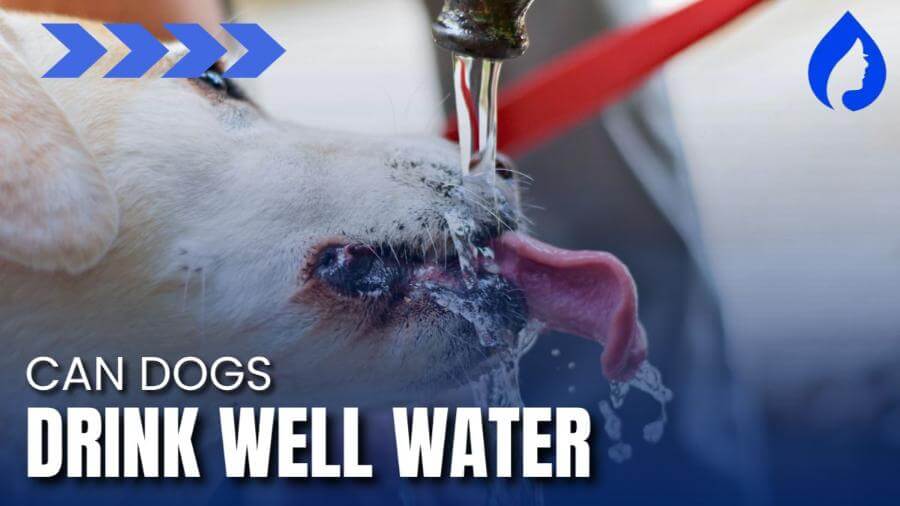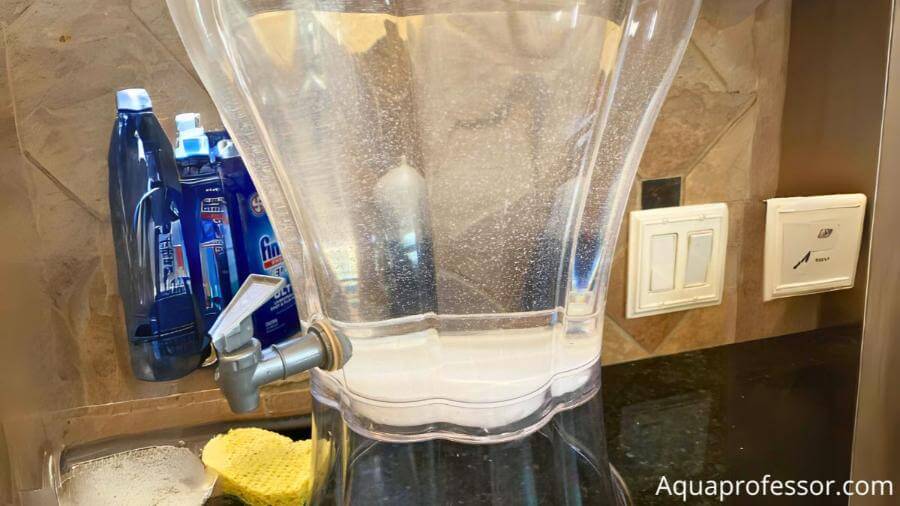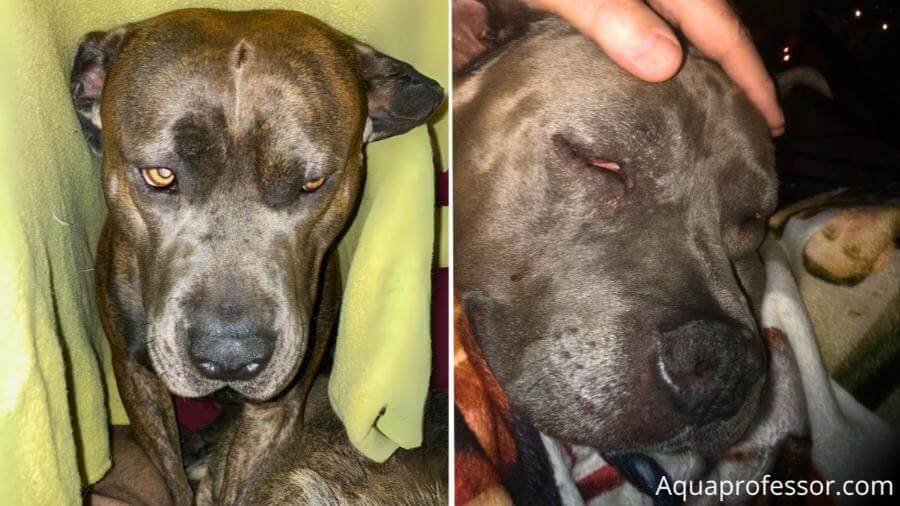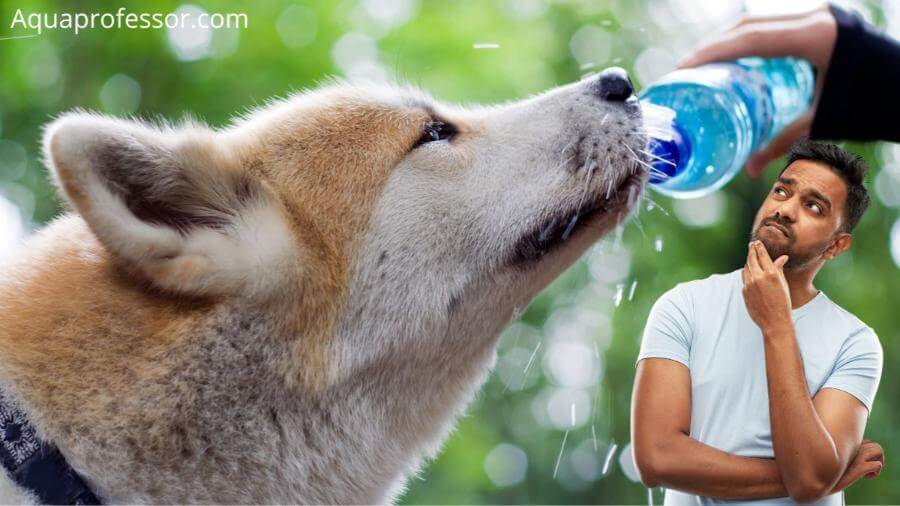
No, dogs shouldn’t drink well water, as the EPA does not regulate it, and it may contain excess amounts of hardness minerals, heavy metals, and harmful bacteria, which may cause health issues like diarrhea and UTIs.
You should test your well water to know the specific contaminants you must remove using water filters to make it safe for your pet dog.
Continue reading to learn specifics on whether dogs can drink well water along with actionable solutions.
🤔Is Well Water Safe For Dogs?
According to a study by the USGS, 23% of US wells (total wells tested: 2000) have at least one pollutant that can lead to adverse health effects.
Here, we discuss all the main concerning contaminants in well water, one by one:
💦Is Hard Well Water Bad For Dogs To Drink?

Hard well water doesn’t cause illness in pet dogs in most cases. However, its bitter taste can upset your dog.
Also, bathing your dog in hard water can cause itchy, dry skin and fur. You can install a water softener to resolve this issue easily. Otherwise, you can use bottled water.
There was one study published in 2016 by a pet insurance company, Trupanion, where they tried to establish a link between urinary health issues in pet animals and water hardness. However, the study is now retracted, and no further studies prove the correlation between UTI and hard water.
However, bacterial contamination (especially coliform bacteria) has been proven to be the most common cause of UTI infections.
🐶Can Well Water Cause UTI In Dogs?

While well water isn’t the direct cause of urinary tract infections, contaminants like E. coli bacteria in untreated water containing human waste can cause UTIs in dogs.
Some of the common symptoms of UTI in dogs include:
To prevent this issue, you must:
Note:
You can treat UTIs in dogs by giving them antibiotics.
🎯Other Potential Well Water Contaminants And Their Impacts On Dogs

Besides pathogens, here are some other well-water pollutants that cause illness in your furry friends:
The list is not exhaustive. So, to learn more about the common contaminants present in well water, you can check out the official EPA resource.
👉Well Water And Dogs: What Should A Dog Parent Do?

The EPA doesn’t regulate well water quality, and it may contain harmful and aesthetic contaminants in your drinking water, which can cause bacterial infections and disrupt bodily functions in your pet dog.
Also, states may have their own regulations for private wells.
So you should test your well water using a state-certified lab for contaminants like:
And install appropriate water filters to get purified water for safe drinking, depending on the specific levels of contaminants.
💡Can Dogs Drink Well Water? FAQs
Can well water cause diarrhea in dogs?
Yes, well water can cause diarrhea, urinary issues, and stomach irritation in dogs if contaminated with E. coli, Giardia, or other common types of bacteria.
It mostly happens when there’s a septic leak due to improper well construction. So, doing shock chlorination and repairing damaged well casings is crucial.
Can well water make dogs itch?
Yes, well water can make dogs itch due to its more than 60 mg/l hardness, iron content of over 0.3 mg/l, and other aesthetic contaminants.
To fix this, test your well water to confirm specific contaminants and install water softeners and iron filters to relieve your pet dog from itching.
Should I give my dog tap water or bottled water?
You can give tap water to your dog, as it’s regulated by the EPA and safe to drink for humans and dogs.
But if your tap water supply has problems with traces of chlorine that discomfort your dog’s sense of smell, consider filtering it or using bottled water.
What is the best water for dogs?
Tap water is generally best for pet dogs, as it’s regulated by government authorities to make it safe for drinking.
However, if you find news reports of unfiltered tap water contamination, opt for bottled spring water or install water filters to avoid exposure to harmful chemicals.
Can dogs drink softened well water?
Yes, dogs can drink softened well water, as it doesn’t taste bitter like hard water and doesn’t irritate their fur.
Softened water contains some added sodium, but your dog can safely drink it unless he is on a low-sodium diet.
Adarsh is a Health & Nutrition Sciences graduate with expertise in environmental health. He is associated with ventures like Glacier Fresh Filter and Simpure Filter Systems. Through Aqua Professor, he intends to provide helpful information to every home to help them make smarter decisions.
